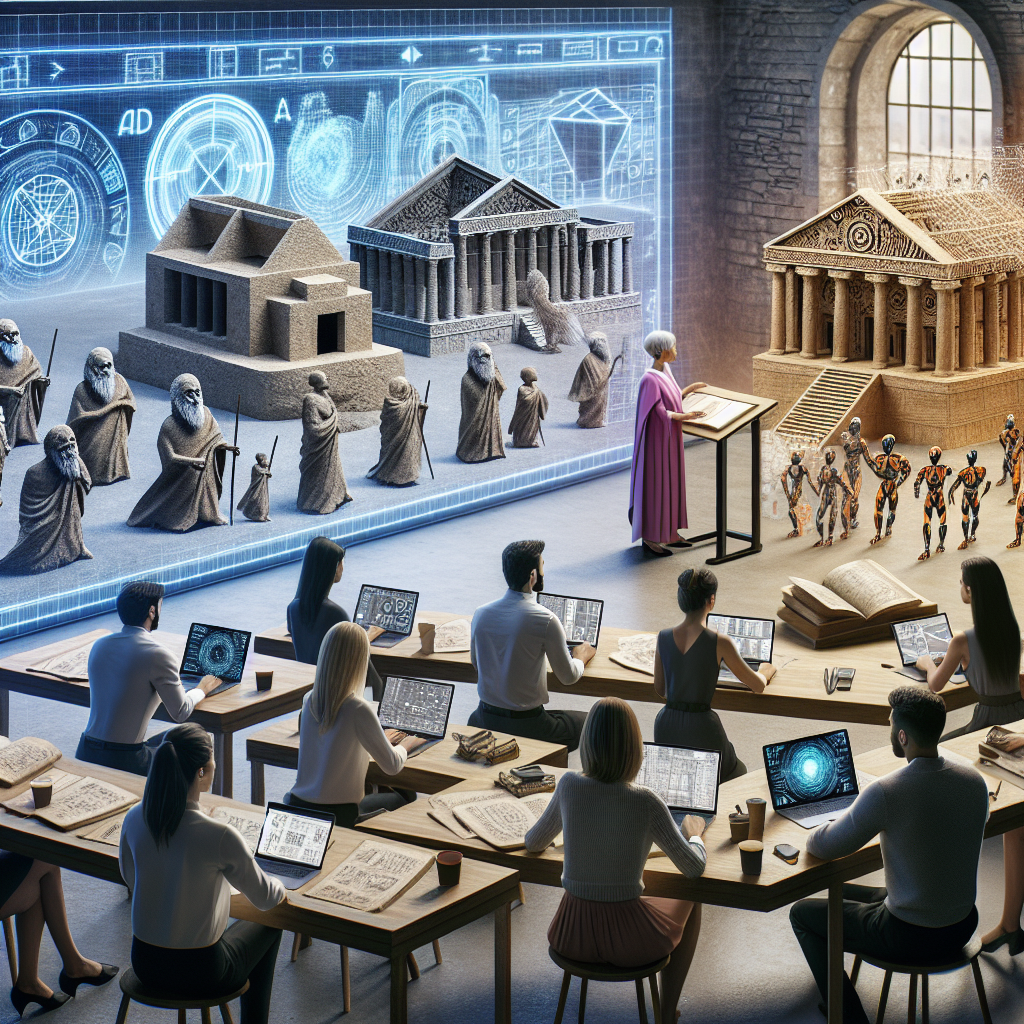The Evolution of AI in Architectural Education
Artificial intelligence (AI) has been rapidly transforming various industries over the past few years, and the field of architecture is no exception. The integration of AI technologies into architectural education has the potential to revolutionize the way students learn and practice architecture. From design and modeling to construction and project management, AI is reshaping the entire architectural process.
In this article, we will explore the evolution of AI in architectural education, its impact on the industry, and the challenges and opportunities it presents for students and educators.
The Rise of AI in Architectural Education
AI technologies, such as machine learning, computer vision, and natural language processing, are being increasingly adopted in architectural education to enhance the learning experience for students. These technologies provide students with powerful tools to analyze, visualize, and simulate complex architectural designs, helping them to develop their design skills and creativity.
One of the key areas where AI is making a significant impact in architectural education is in design exploration and optimization. AI algorithms can analyze vast amounts of data and generate design alternatives based on predefined parameters, allowing students to explore a wide range of design possibilities and find the best solutions for their projects. This not only accelerates the design process but also helps students to think more critically and creatively about their designs.
AI is also being used to improve the efficiency of the construction process by optimizing building layouts, materials, and construction methods. By simulating various construction scenarios and identifying potential issues before they arise, AI technologies help students to design buildings that are more sustainable, cost-effective, and structurally sound.
Another area where AI is making a significant impact in architectural education is in project management and collaboration. AI-powered project management tools can streamline communication, scheduling, and budgeting processes, enabling students to work more efficiently and effectively on their projects. These tools also help students to collaborate with their peers and industry professionals, allowing them to gain real-world experience and build valuable connections in the industry.
Challenges and Opportunities
While AI technologies offer numerous benefits to architectural education, they also present some challenges that need to be addressed. One of the main challenges is the lack of understanding and awareness of AI among students and educators. Many students may not be familiar with AI technologies or how they can be applied in architecture, which can hinder their ability to fully leverage the potential of these technologies in their education.
Another challenge is the need for educators to keep pace with the rapid advancements in AI technologies and incorporate them into the curriculum effectively. This requires educators to undergo training and professional development to stay updated on the latest trends and best practices in AI education. Additionally, educators need to ensure that AI technologies are integrated into the curriculum in a way that enhances students’ learning experience and helps them develop the necessary skills and competencies for a successful career in architecture.
Despite these challenges, AI technologies also present numerous opportunities for students and educators in architectural education. AI-powered design tools can help students to experiment with new design ideas, analyze complex design problems, and develop innovative solutions. These tools can also help students to collaborate with their peers and industry professionals, enabling them to gain valuable insights and feedback on their projects.
Moreover, AI technologies can provide students with a more personalized learning experience by adapting to their individual learning styles and preferences. By analyzing students’ performance data and providing personalized recommendations and feedback, AI technologies can help students to improve their skills and achieve better learning outcomes.
FAQs
Q: How can AI technologies enhance the design process in architectural education?
A: AI technologies can enhance the design process by analyzing vast amounts of data and generating design alternatives based on predefined parameters. This allows students to explore a wide range of design possibilities and find the best solutions for their projects.
Q: What are some of the challenges of integrating AI technologies into architectural education?
A: Some of the challenges of integrating AI technologies into architectural education include the lack of understanding and awareness of AI among students and educators, the need for educators to keep pace with the rapid advancements in AI technologies, and the effective integration of AI technologies into the curriculum.
Q: What are some of the opportunities that AI technologies present for students and educators in architectural education?
A: AI technologies present numerous opportunities for students and educators in architectural education, including the ability to experiment with new design ideas, analyze complex design problems, develop innovative solutions, collaborate with peers and industry professionals, and receive personalized feedback and recommendations.
In conclusion, the integration of AI technologies into architectural education is revolutionizing the way students learn and practice architecture. By leveraging the power of AI algorithms and tools, students can develop their design skills, explore new design possibilities, optimize construction processes, and collaborate more effectively on their projects. While there are challenges to overcome, the opportunities that AI technologies present for students and educators in architectural education are vast and promising. By embracing AI technologies and incorporating them into the curriculum, architectural education can prepare students for a successful and rewarding career in the dynamic and evolving field of architecture.

